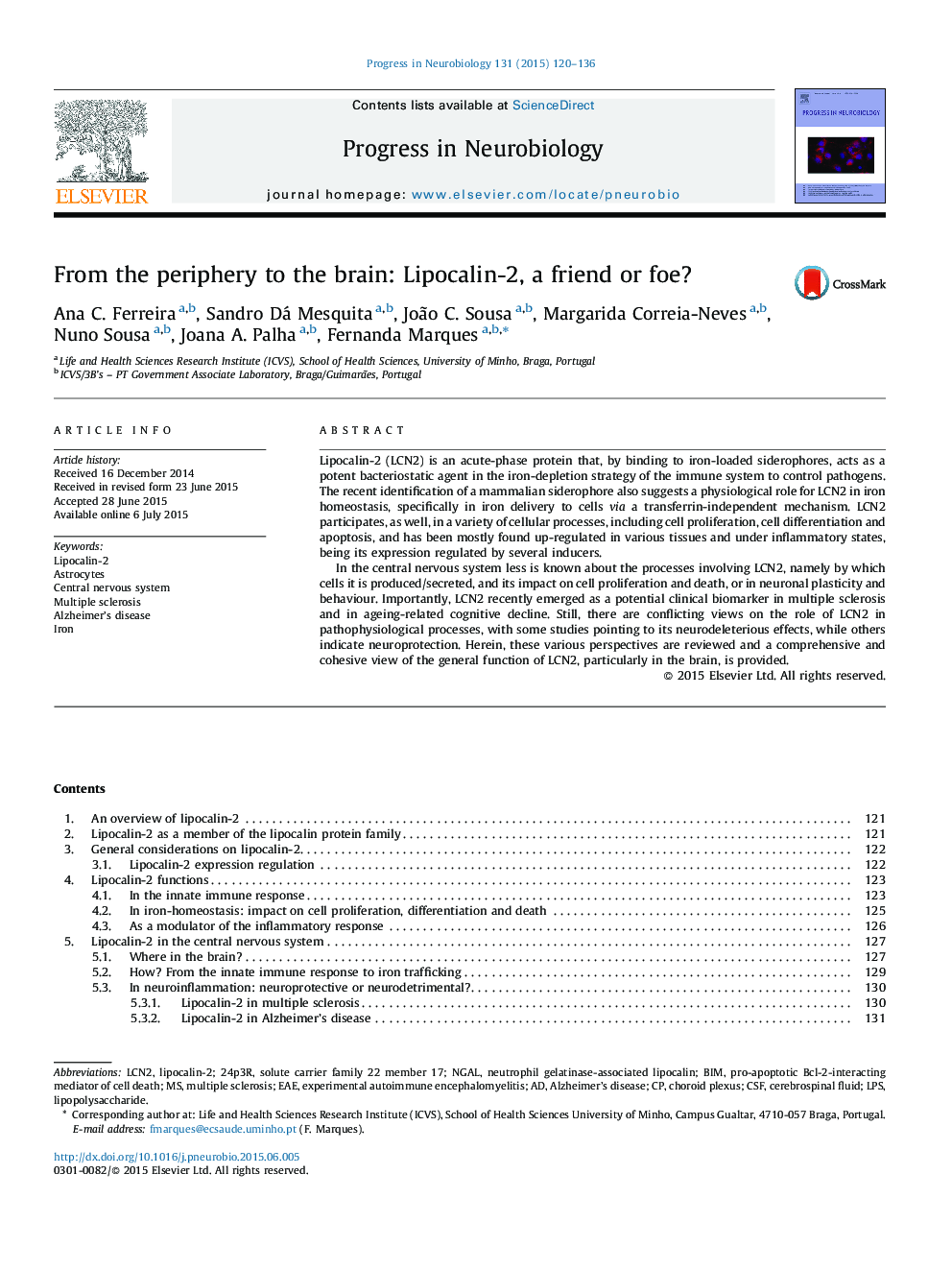| Article ID | Journal | Published Year | Pages | File Type |
|---|---|---|---|---|
| 4353269 | Progress in Neurobiology | 2015 | 17 Pages |
•An overview on LCN2 functions in immunity, iron metabolism and inflammation.•Described inconsistency on LCN2 role in disease onset and progression.•Highlights on LCN2′ role in neuroinflammation: protective and detrimental effects.•Insights on the promising prognostic value of LCN2 as a disease biomarker.
Lipocalin-2 (LCN2) is an acute-phase protein that, by binding to iron-loaded siderophores, acts as a potent bacteriostatic agent in the iron-depletion strategy of the immune system to control pathogens. The recent identification of a mammalian siderophore also suggests a physiological role for LCN2 in iron homeostasis, specifically in iron delivery to cells via a transferrin-independent mechanism. LCN2 participates, as well, in a variety of cellular processes, including cell proliferation, cell differentiation and apoptosis, and has been mostly found up-regulated in various tissues and under inflammatory states, being its expression regulated by several inducers.In the central nervous system less is known about the processes involving LCN2, namely by which cells it is produced/secreted, and its impact on cell proliferation and death, or in neuronal plasticity and behaviour. Importantly, LCN2 recently emerged as a potential clinical biomarker in multiple sclerosis and in ageing-related cognitive decline. Still, there are conflicting views on the role of LCN2 in pathophysiological processes, with some studies pointing to its neurodeleterious effects, while others indicate neuroprotection. Herein, these various perspectives are reviewed and a comprehensive and cohesive view of the general function of LCN2, particularly in the brain, is provided.
